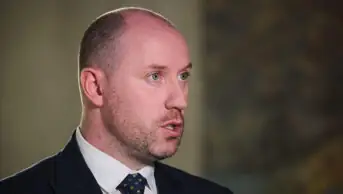
Shutterstock.com
NHS pay rises of more than 2.5% for 2026/2027 would mean “trade-offs against headline government health commitments”, the Department of Health and Social Care (DHSC) has said.
In written evidence to the NHS Pay Review Body for the 2026/2027 pay round, published on 30 October 2025, the DHSC said its current financial and delivery plans only allow for a 2.5% increase.
However, if independent pay review bodies recommend pay increases higher than this, it would need to “consider whether and how this could be made affordable from within existing DHSC budgets”.
“Accepting such an award would inevitably have an impact on healthcare delivery,” it added.
For 2025/2026, NHS pharmacists in England and Wales employed on Agenda for Change (AfC) contracts received a 3.6% pay rise, while pharmacists in Scotland agreed to a 4.25% rise.
Commenting on the government’s evidence, Paul Day, director of the Pharmacists’ Defence Association (PDA) Union, said: “The government’s statement on affordability is not an ‘offer’ as such — the process is that the independent [NHS] Pay Review Body should also consider economic and other evidence before recommending to government what they believe should happen to pay bands. Only then will we learn what the government propose to pay, having considered the NHS Pay Review Body recommendation.
“However, if that final figure is less than inflation, it would mean real-terms cuts to the pay of NHS-employed pharmacists, including our members in ICBs [integrated care boards], CSUs [commissioning support units] and NHS England itself, who are currently facing the risk of redundancy and uncertainty of restructures, in addition to the demands of their roles.”
“Health unions, including the PDA, have already told UK government that they have lost confidence in the [NHS] Pay Review Body process and are proposing to return to pay negotiation, as has already happened in Scotland,” he added.
Day said that once the government’s reaction to the NHS Pay Review Body process was known, “the PDA will formally be asking members employed in the NHS what response they wish to make“.
Commenting on the written evidence, Helga Pile, head of health at UNISON, said the government’s suggestion that it could only afford a 2.5% pay rise was “an insult”.
“This is surely the final nail in the coffin for the [NHS] Pay Review Body process. Ministers must now get unions in for talks and put a decent level of funding on the table. The government must show it’s serious about getting the NHS back on its feet and improving patient care,” she said.
A spokesperson for the Guild of Healthcare Pharmacists said: “Plans don’t deliver change, people do. It appears as though this government has forgotten that amidst chaotic cuts to ICBs and the ongoing dissolution of NHS England. This pay proposal is below inflation, meaning a real-terms pay cut for AfC staff, which is only going to further sink morale.”
In the written evidence, the DHSC also said: “NHS England recognises system-wide challenges in recruiting and retaining education supervisors, particularly those supporting the training of independent prescribers.
“NHS England will invest in the development and training of educators and prescriber supervisors.”
The upcoming NHS ten-year workforce plan for England “will outline strategies for improving retention, productivity, training and reducing attrition — enhancing conditions for all staff”, it added.
An open call for evidence to inform the workforce plan will close on 7 November 2025.


